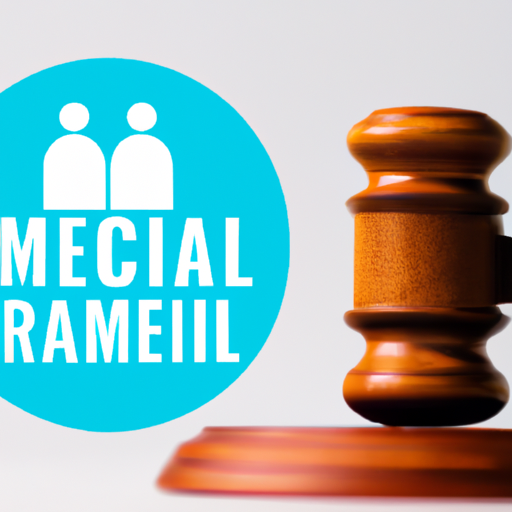In today’s digital age, social media has become an integral part of our daily lives. From personal use to business promotion, social media platforms allow us to connect, share, and engage with others on a global scale. However, with this increased connectivity comes the need for compliance in the world of social media. As businesses navigate the complex landscape of online advertising and promotion, it is crucial to understand the legal and regulatory obligations that come with it. In this article, we will explore a series of success stories where businesses have effectively achieved social media claims compliance, ensuring they stay within the boundaries of the law while reaping the benefits of digital marketing. Along the way, we will address frequently asked questions (FAQs) to provide you with a comprehensive understanding of the topic. Let’s delve into the realm of social media claims compliance and uncover best practices that can safeguard your business’s online presence.

Social Media Claims Compliance Success Stories
In today’s digital age, social media has become an integral part of businesses’ marketing strategies. However, with the rise in social media usage, there are also increasing concerns about the accuracy and compliance of claims made on these platforms. This is where social media claims compliance comes into play.
What is Social Media Claims Compliance?
Social media claims compliance refers to the practice of ensuring that the claims made by businesses on social media platforms are accurate, truthful, and compliant with advertising regulations. It involves monitoring and managing the content that is shared on social media platforms to avoid misleading or false claims that could potentially harm consumers or misrepresent products and services.
Why is Social Media Claims Compliance important for businesses?
For businesses, social media claims compliance is crucial for several reasons. Firstly, it helps to maintain the reputation and credibility of the company. By ensuring that the claims made on social media platforms are accurate and compliant, businesses can build trust with their audience and establish themselves as reliable sources of information.
Secondly, social media claims compliance is essential for avoiding legal issues. Misleading or false claims can lead to legal consequences, such as lawsuits or fines, which can significantly impact a company’s finances and operations. By proactively ensuring compliance, businesses can mitigate these risks and protect themselves from potential legal disputes.
Lastly, social media claims compliance is vital for maintaining consumer trust and loyalty. Consumers are becoming increasingly wary of false or exaggerated claims on social media, and businesses that are transparent and compliant with regulations are more likely to gain and retain customer trust. This can ultimately lead to increased brand loyalty and customer satisfaction.
Common challenges in achieving Social Media Claims Compliance
While social media claims compliance is important, it can be challenging for businesses to achieve. Some common challenges include:
-
Keeping up with regulations: Social media advertising regulations are constantly evolving, and businesses need to stay updated with the latest changes in order to ensure compliance.
-
Managing multiple platforms: With the numerous social media platforms available, it can be difficult for businesses to effectively manage and monitor all their social media activities to ensure compliance.
-
Training employees: Ensuring that all employees are aware of the regulations and trained on compliance best practices can be a time-consuming and resource-intensive task.
-
Balancing marketing objectives: Businesses often face the challenge of balancing their marketing objectives with compliance requirements. Finding the right balance between engaging content and compliant claims can be a delicate task.
Benefits of achieving Social Media Claims Compliance
Despite the challenges, achieving social media claims compliance can bring significant benefits to businesses. Some of the key advantages include:
-
Enhanced reputation and trust: By ensuring accurate and compliant claims, businesses can enhance their reputation and build trust with their audience, leading to increased brand loyalty and customer satisfaction.
-
Mitigated legal risks: Compliance with social media claims regulations can help businesses avoid legal issues, such as lawsuits and fines, which can have a detrimental impact on their finances and operations.
-
Increased consumer confidence: When consumers see that a business is compliant with advertising regulations, they are more likely to have confidence in the products or services being offered.
-
Improved marketing effectiveness: Accurate and compliant claims can contribute to more effective marketing campaigns, as they are more likely to resonate with consumers and drive engagement.
Success stories of businesses achieving Social Media Claims Compliance
Many businesses have successfully achieved social media claims compliance and have reaped the benefits of doing so. Here are two success stories that highlight the importance and impact of compliance.
Case Study: Company A’s Journey to Social Media Claims Compliance
Background of Company A
Company A is a global pharmaceutical company that specializes in developing and manufacturing life-saving medications. With a strong presence on social media, Company A faced the challenge of ensuring compliance with advertising regulations while effectively engaging with their audience.
Challenges faced by Company A in achieving Social Media Claims Compliance
Company A encountered several challenges in their journey to social media claims compliance. Firstly, as a global pharmaceutical company, they had to navigate a complex web of international advertising regulations, each with its own set of requirements. It was essential for Company A to understand and comply with these regulations to ensure that their social media claims were accurate and compliant.
Secondly, the dynamic nature of social media platforms posed a challenge for Company A. Managing multiple social media accounts across various platforms while monitoring and ensuring compliance was a demanding task.
Solutions implemented by Company A to achieve Compliance Success
To overcome these challenges, Company A implemented several solutions. They established a dedicated compliance team, consisting of legal experts and marketing professionals, who were responsible for reviewing and approving all social media content before it was published. This team ensured that all claims made on social media platforms were accurate, supported by evidence, and compliant with applicable regulations.
Additionally, Company A invested in comprehensive training programs for their employees. These programs educated employees on the importance of social media claims compliance and provided them with the knowledge and skills necessary to ensure compliance in their day-to-day activities.
Results of Company A’s Compliance Success
By prioritizing social media claims compliance, Company A achieved significant results. They saw an improvement in their reputation and credibility, with consumers recognizing the company as a trustworthy source of information. This led to increased customer loyalty and satisfaction.
Moreover, Company A successfully avoided legal disputes and penalties by ensuring compliance with international advertising regulations. This helped them maintain their financial stability and operational efficiency.
Case Study: Company B’s Journey to Social Media Claims Compliance
Background of Company B
Company B is a startup in the beauty and skincare industry. As a new player in the market, Company B recognized the importance of social media claims compliance from the outset and took proactive steps to ensure compliance.
Challenges faced by Company B in achieving Social Media Claims Compliance
One of the main challenges faced by Company B was the need to navigate the complex landscape of advertising regulations in the beauty and skincare industry. With numerous claims and promises made by competitors on social media, it was crucial for Company B to differentiate themselves while staying compliant.
Additionally, as a startup, Company B had limited resources and manpower. Ensuring compliance while managing other aspects of their business posed a significant challenge.
Solutions implemented by Company B to achieve Compliance Success
To overcome these challenges, Company B adopted a multi-pronged approach. They conducted thorough research on advertising regulations specific to the beauty and skincare industry, ensuring that their claims were accurate, substantiated, and compliant. This allowed them to stand out from competitors while maintaining compliance.
Company B also leveraged technology to streamline their compliance processes. They invested in social media monitoring tools that helped them track their online presence and identify any potential compliance issues. This proactive approach allowed them to swiftly address any concerns and rectify non-compliant content.
Results of Company B’s Compliance Success
By prioritizing social media claims compliance from the beginning, Company B gained a competitive edge in the beauty and skincare industry. Their accurate and compliant claims established them as a reliable brand, attracting customers who valued transparency and honesty.
Furthermore, by investing in technology and streamlining their compliance processes, Company B was able to efficiently manage their social media activities while allocating their limited resources effectively.
Best Practices for Social Media Claims Compliance
Achieving social media claims compliance requires a proactive approach and adherence to industry best practices. Here are some key practices to consider:
Developing a comprehensive social media policy
Businesses should develop a robust social media policy that outlines the guidelines and expectations for employees regarding social media claims compliance. This policy should cover areas such as accurate claim substantiation, disclosure of material connections, and appropriate engagement with consumers.
Training employees on social media compliance
Employees should receive regular training on social media compliance to ensure they are aware of the latest regulations and best practices. This training should emphasize the importance of accurate and compliant claims and provide practical guidance on how to achieve compliance.
Regular monitoring and auditing of social media activities
Businesses should establish a system for regular monitoring and auditing of their social media activities. This helps identify any potential compliance issues and allows for prompt action to rectify them. It is also important to keep a record of these monitoring activities to demonstrate compliance efforts if required.
Engaging legal counsel for compliance guidance
Legal counsel can provide valuable guidance and advice on social media claims compliance. They can help businesses navigate complex regulations, review content for compliance, and provide necessary support in case of legal disputes.
Staying up to date with regulatory changes
Social media advertising regulations are constantly evolving, and businesses need to stay informed about any changes that may impact their compliance efforts. Regularly reviewing industry guidelines and staying updated on regulatory changes is essential for maintaining compliance.

Conclusion
Social media claims compliance is a critical aspect of businesses’ marketing strategies. By ensuring that the claims made on social media platforms are accurate, truthful, and compliant with advertising regulations, businesses can build trust with their audience, mitigate legal risks, and enhance their reputation. While achieving compliance may come with challenges, businesses can learn from success stories and follow best practices to attain social media claims compliance success.
FAQs about Social Media Claims Compliance
What are some common legal issues related to social media claims?
Some common legal issues related to social media claims include false advertising, deceptive practices, infringement of intellectual property rights, and violation of consumer protection regulations.
How can businesses ensure compliance with advertising regulations on social media?
Businesses can ensure compliance with advertising regulations on social media by developing a comprehensive social media policy, providing regular training to employees, monitoring and auditing social media activities, engaging legal counsel for guidance, and staying up to date with regulatory changes.
What are the consequences of non-compliance with social media claims regulations?
The consequences of non-compliance with social media claims regulations can include legal actions, such as lawsuits and fines, damage to reputation and credibility, loss of customer trust and loyalty, and financial implications for the business.
Where can businesses find resources for guidance on social media claims compliance?
Businesses can find resources for guidance on social media claims compliance from industry associations, legal and regulatory bodies, and professional consultants specializing in social media compliance.
How long does it take to achieve social media claims compliance success?
The time it takes to achieve social media claims compliance success varies depending on various factors, such as the complexity of the industry, the size of the business, and the resources dedicated to compliance efforts. However, with a proactive approach, dedication to compliance best practices, and continuous improvement, businesses can achieve compliance success over time.
